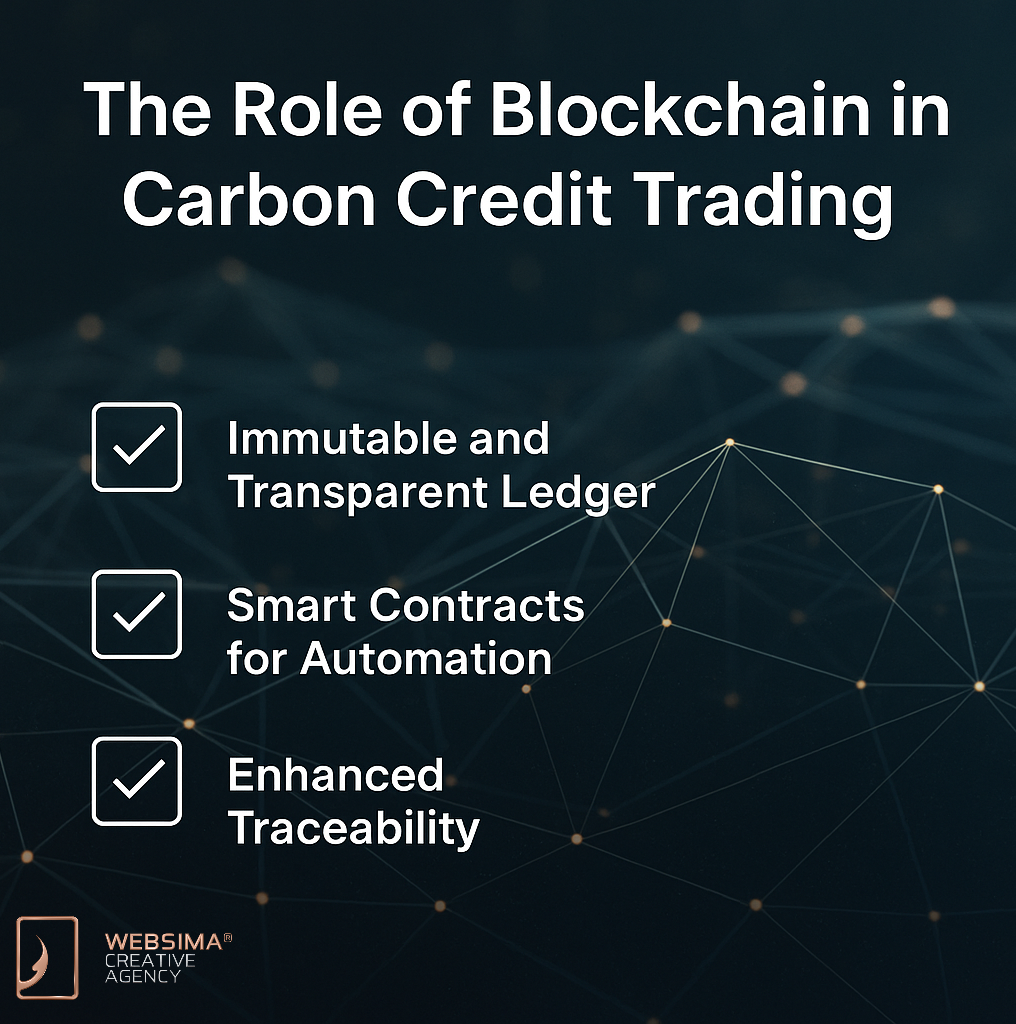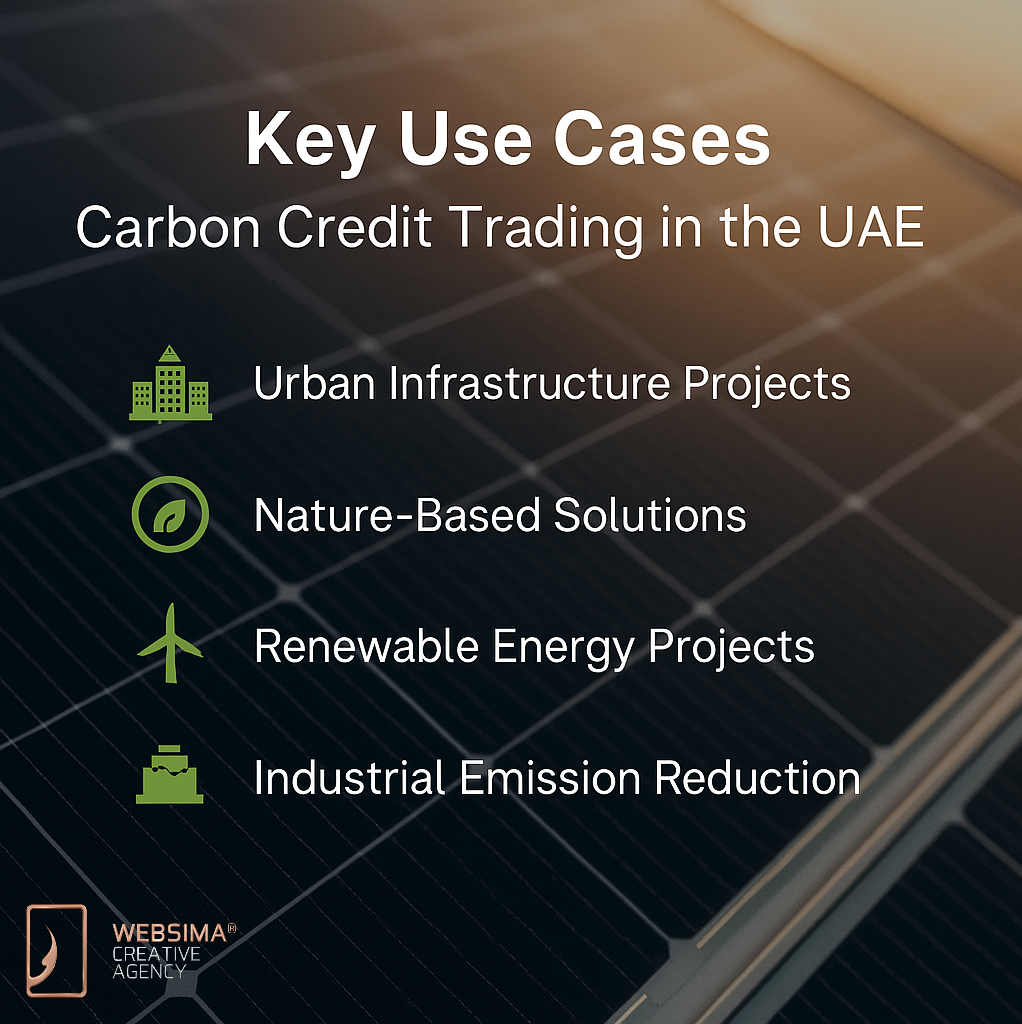Introduction
The global push toward sustainability has never been stronger, and the UAE is rapidly positioning itself as a leader in environmental innovation and green blockchain innovation in Dubai is increasingly integrated into this agenda. One area where technology and climate action intersect is carbon credit trading—a market designed to incentivize reductions in greenhouse gas emissions. As this market matures, blockchain technology is revolutionizing carbon credit trading in the UAE, offering transparency, verifiability, and trust in an ecosystem that has traditionally struggled with accountability.
This article explores how blockchain carbon credit trading in UAE is being implemented, the benefits it offers, and why the UAE is uniquely positioned to lead in this emerging market.
Understanding Carbon Credits and Why They Matter
What are carbon credits and how are they being tokenized?
Carbon credits, also known as carbon offsets, are digital certificates that represent the reduction, removal, or avoidance of carbon dioxide from the atmosphere♻️ Types of Carbon Credits:
-Voluntary Carbon Credits… pic.twitter.com/S1fqvR4T3W— Blubird (@blubird_app) December 12, 2024
Carbon credits are certificates that represent the right to emit one tonne of carbon dioxide or an equivalent amount of other greenhouse gases. They are a key mechanism for meeting international climate goals such as the Paris Agreement, allowing companies to offset emissions by purchasing credits from projects that reduce or capture CO₂.
In the UAE—where environmental resilience is a strategic pillar under UAE Vision 2031—carbon trading is gaining traction. However, the traditional carbon market has faced criticism over fraud, double-counting, and lack of transparency. This is where blockchain steps in.
The Role of Blockchain in Carbon Credit Trading

1. Immutable and Transparent Ledger
Blockchain provides an immutable, distributed ledger where each carbon credit is tokenized and permanently recorded. This ensures:
- No double-counting of credits
- Full visibility across all stakeholders
- Tamper-proof verification of credit origin
2. Smart Contracts for Automation
Smart contracts enable:
- Automated credit issuance once verified metrics are submitted
- Real-time updates on credit status
- Instant settlement of transactions between buyers and sellers
3. Enhanced Traceability
Each tokenized carbon credit contains metadata detailing its:
- Source project (e.g., solar farm, mangrove restoration)
- Verification body
- Date and expiration
This traceability builds trust among participants and auditors.
UAE’s Strategic Adoption of Blockchain for Carbon Credits
Government-Led Sustainability Initiatives
The UAE has pledged net-zero carbon emissions by 2050 and is investing in technologies to meet these goals. The Ministry of Climate Change and Environment (MOCCAE) and Dubai Carbon Centre of Excellence are key stakeholders in this space.
Integration with Blockchain Infrastructure
The UAE’s broader blockchain ecosystem, championed by Smart Dubai and Dubai Blockchain Strategy, supports the integration of carbon trading platforms on secure, government-aligned blockchain networks.
Partnerships with Private Sector
Emerging platforms like AirCarbon Exchange (ACX) and CarbonX are actively working to establish carbon trading platforms in the UAE with blockchain at their core.
In 2023, the Abu Dhabi Global Market (ADGM) launched the region’s first regulated carbon trading exchange, indicating the UAE’s seriousness about institutional-grade solutions.
Benefits of Blockchain Carbon Credit Trading in UAE
| Benefit | Description |
| Transparency | All trades and credit origins are viewable by anyone on the network |
| Efficiency | Reduces the time and cost of issuing and verifying carbon credits |
| Compliance | Smart contracts help meet regulatory and sustainability reporting |
| Market Access | Global investors can confidently engage with UAE-based platforms |
| Data Integration | IoT and satellite data can be fed into smart contracts for real-time verification |
Key Use Cases in the UAE

️ Urban Infrastructure Projects
Carbon credits generated from energy-efficient buildings, public transport projects, or retrofitting initiatives can be tokenized and traded transparently.
Nature-Based Solutions
Mangrove planting in Ras Al Khaimah and desert restoration projects in Abu Dhabi generate high-quality, verifiable carbon credits.
Renewable Energy Projects
Solar parks like Mohammed bin Rashid Al Maktoum Solar Park are already carbon-positive projects suitable for tokenized credit issuance.
Industrial Emission Reduction
Blockchain facilitates carbon offsets from carbon capture and storage (CCS) initiatives in ADNOC and other heavy industries.
Challenges and Considerations
1. Regulatory Clarity
Although the UAE is moving fast, clear frameworks are still evolving around digital carbon assets, tokenization laws, and carbon reporting standards.
2. Interoperability
Different platforms may use different blockchain networks. Ensuring interoperability between platforms (e.g., Ethereum, Hyperledger) is critical.
3. Verification Standards
To ensure trust, the blockchain-based systems must integrate with internationally recognized standards like:
- Verra
- Gold Standard
- Climate Action Reserve
Global Players Supporting UAE Projects
Several global blockchain and climate tech firms are active in the UAE market:
- AirCarbon Exchange (ACX) – A blockchain-based carbon exchange headquartered in Abu Dhabi
- Toucan Protocol – Focuses on bringing traditional carbon credits on-chain
- ClimateTrade – Supports tokenized carbon marketplaces globally, expanding into MENA
Future Outlook: Why UAE Is Leading
The UAE is uniquely positioned to dominate this space due to:
- Government support for both climate action and blockchain innovation
- Presence of regulated financial hubs (ADGM, DIFC)
- Access to institutional capital and clean energy projects
- An agile regulatory ecosystem like VARA and SCA already exploring crypto-token regulations
As a result, blockchain carbon credit trading in UAE is not just a trend—it’s shaping into a core pillar of the country’s green digital economy.
Conclusion
Carbon credits play a pivotal role in achieving global climate goals. In the UAE, where climate innovation meets blockchain transformation, tokenized carbon credit platforms are creating new opportunities for sustainable finance. Through transparent ledgers, smart contracts, and regulatory alignment, blockchain is helping redefine how the UAE measures, manages, and monetizes emissions.
As these platforms evolve, stakeholders—from renewable energy developers to green investors—will benefit from a marketplace built on trust, efficiency, and verifiability. The result? A smarter, greener UAE at the forefront of climate-tech innovation.
Ready to Lead the UAE’s Green Blockchain Revolution?
Whether you’re a climate-focused startup, a real estate developer aiming for net-zero certification, or an enterprise seeking ESG compliance through innovation—Websima is your ideal blockchain technology partner in the UAE.
We specialize in:
- Custom blockchain development for carbon credit trading platforms
- Smart contract programming tailored for climate action
- Tokenomics advisory and launch support
- Regulatory consulting to align your platform with VARA, ADGM, and SCA frameworks
- Web3 integrations to enhance transparency, traceability, and global investor access
Sustainability meets scalability. Let’s build the UAE’s next-generation climate tech solutions—secure, compliant, and blockchain-powered.
Connect with us today and start building your carbon credit ecosystem in the UAE.





